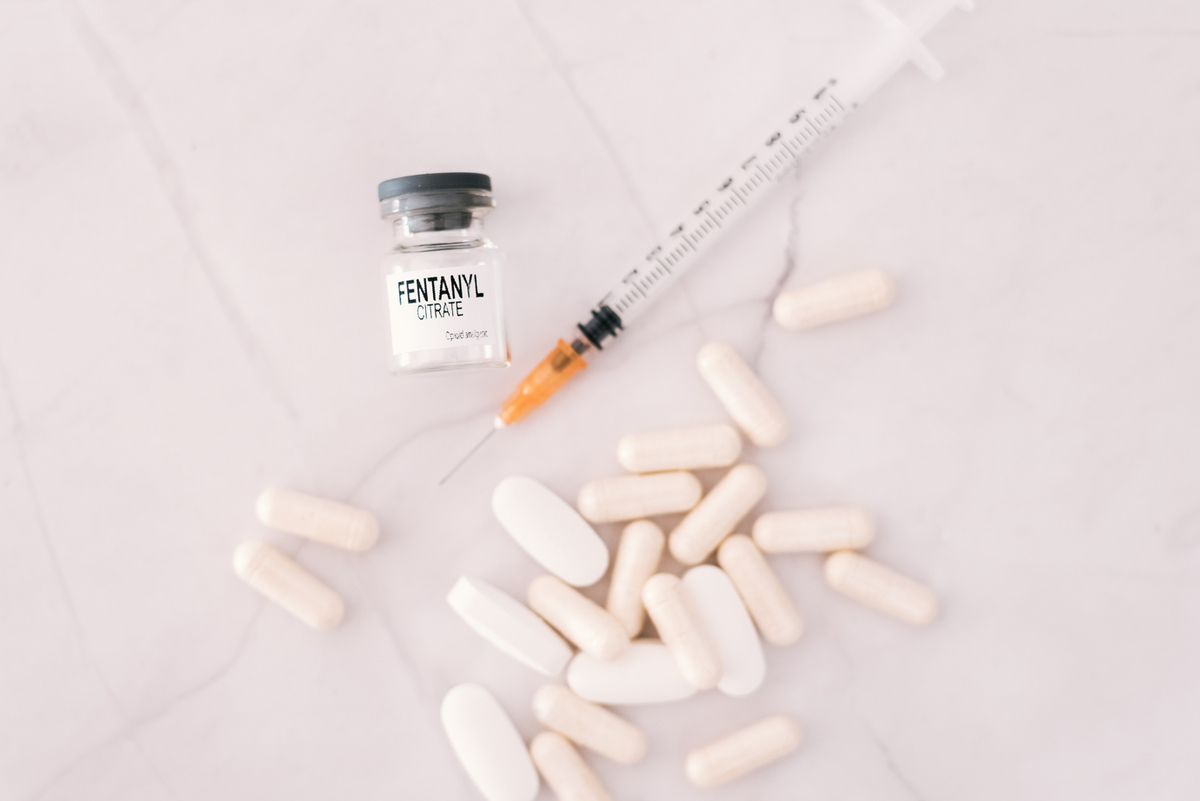Drug overdoses took the lives of more than 70,000 people in America in 2019 alone, the National Institute on Drug Abuse suggests — while data from the CDC tells us that opioids over 70 percent of overdose deaths in that same year.

I might be approaching the age at which people might describe me as a "little old lady" now, and I'm no more than 10 years away from retirement, but I wasn't always as "tame" as I am now. In my former life, I back-packed across Europe and beyond, fell in with the punk crowd, and was part of the heavy drugs scene in the 1980s. I never did anything heavier than marijuana and a few shrooms myself, but I knew plenty who were addicted to opioids — heroin, in those days — plenty whose promising futures were ruined by them, plenty who escaped their miserable lives through them, and plenty who ultimately died by their hands.
Times may have changed since then (as have drugs of choice), but the fact that people are getting addicted to opioids at an alarming rate, and dying to them at a rate of 190 people a day (yes, that's in the United States alone, and due to highly varying data collection methods, reliable statistics are not available for the entire planet) has not.
Can you talk someone out of their addiction?
Spoiler alert: no. The roads to drug addiction may range from Childhood Trauma Road to Boredom Avenue and Open-Minded Experimentation Drive, but they all lead to the same destination. Once someone is truly addicted to opioid drugs, something about their brain chemistry fundamentally changes. The drugs now seem to be the only possible answer to all their stresses and all their joys, and any upheaval at all will cause the person to crave a hit. Even in the absence of that, your loved one will need their drugs simply to keep functioning. Without them, the world feels like it is ending — because to the addict, in a very real way, it is.
I have noticed an alarming trend in articles about overdose prevention in the last 10 years or so. It's all about mental health. Tell your loved one to go to a therapist, or join a support group. Tell your loved one to call a suicide hotline. Encourage them to talk about their awful childhoods. There's a place for that. That kind of thing can help drug addicts process their lives after they have already gotten clean, or it can motivate them to get clean if they already want to.
Mental health counseling, of any kind, is not what will save the life of the addict you love if they have just overdosed, though. If you want to stop your brother, friend, husband, cousin, niece, or neighbor from dying, you have to be able to take practical steps.
What practical steps can you take if you believe someone has overdosed?
This is a multi-step approach:
- Learn to recognize the signs of an opioid overdose. These generally include losing consciousness, being unresponsive to any stimuli, shallow breathing, not being able to speak despite being awake, a purple or gray hue to their skin, vomiting, choking, a limp body, and a weak and slow heart beat.
- Yell at the person and prod them in an attempt to wake them up. Place pressure on the sternum if you need to.
- Call the emergency services immediately if you are able. The 911 dispatcher, or operator of your local emergency service, will take you through the steps you need to take next. Be sure to describe the condition the person is in in as much detail as you can, and provide details of the drugs you think they probably took. Ask when paramedics will arrive on the scene. Follow the dispatcher's instructions.
- If you have access to Narcan (naxolone), a medication that reverses the effects of opioid drugs, and know how to administer it, use it before calling 911. This can save the person's life. If you have it but don't know how to use it, call 911.
- If you are not able to call emergency services, ask someone else to do that, or drive the person to hospital while monitoring them the entire time. Place the person in the recovery position, on their side.
If someone in your life is at risk of overdosing, see if you can get your hands on Narcan, and learn to use it safely. It may save your loved one's life one day very soon; but even after administration, the danger to their life isn't over, and you still need to get them to a hospital.
Anyone at all can benefit from learning how to respond to a suspected opioid overdose — you never know when you may encounter one in practice. Going over these key steps can save lives. You are not responsible for what happens after; that is up to the addict and their treatment team. Doing what you can in the moment can, however, make all the difference.
- www.drugabuse.gov/drug-topics/trends-statistics/overdose-death-rates
- www.cdc.gov/opioids/data/index.html
- harmreduction.org/issues/overdose-prevention/overview/overdose-basics/recognizing-opioid-overdose/
- harmreduction.org/issues/overdose-prevention/overview/overdose-basics/responding-to-opioid-overdose/
- www.drugabuse.gov/publications/drugfacts/naloxone


Your thoughts on this